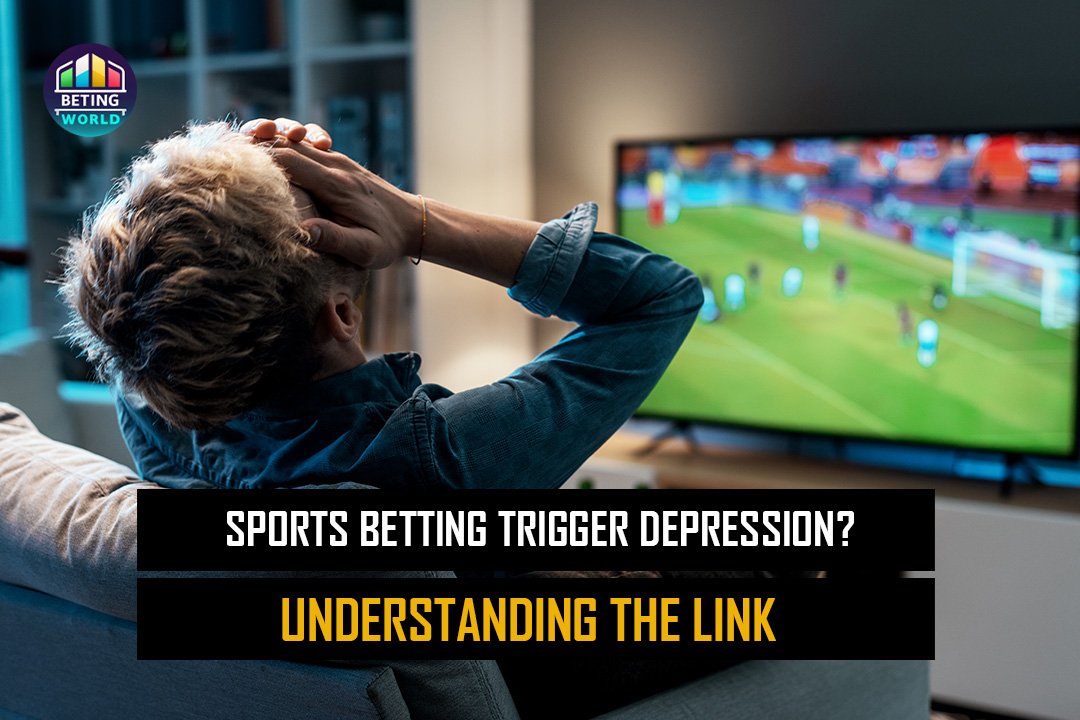For many sports fans, betting on the game adds another layer of excitement. However, for some, online sports betting can lead down a darker path, potentially triggering or worsening symptoms of depression. Let’s delve into the connection between these two and explore how to maintain a healthy relationship with sports betting.
The Thrill of the Win, the Agony of Defeat
Sports betting can be a thrilling experience. When your team wins and your bet pays off, it creates a surge of dopamine, a neurotransmitter associated with pleasure and reward. This positive reinforcement can make you want to repeat the experience.
However, the opposite is also true. Losing a bet, especially a large one, can lead to feelings of disappointment, frustration, and even anger. These emotions can be particularly intense if the bet was placed to try and win money to solve financial problems.
The Cycle of Chasing Losses
Unfortunately, the negative emotions associated with losing bets can trigger a dangerous cycle. Someone struggling with depression might be tempted to place another bet, hoping to win back their losses and regain that feeling of elation. This can quickly become a pattern, leading to even greater financial losses and worsening depressive symptoms.
How Does Sports Betting Contribute to Depression?

There are several ways online sports betting can contribute to depression:
Financial Strain: Mounting losses can lead to financial hardship, causing stress and anxiety. This financial strain can exacerbate feelings of hopelessness, a hallmark symptom of depression.
Loss of Control: When sports betting becomes compulsive, it can feel like you’re losing control of your finances and your behavior. This lack of control can worsen feelings of helplessness and powerlessness, common in depression.
Social Isolation: A gambling problem can lead to social isolation, as individuals may hide their behavior from loved ones due to shame or guilt. This isolation can worsen symptoms of depression, which often thrives in loneliness.
Disrupted Sleep: The stress and anxiety associated with gambling can disrupt sleep patterns. Chronic sleep deprivation can worsen symptoms of depression and make it harder to cope with daily life.
Protecting Yourself: How to Maintain a Healthy Relationship with Sports Betting
Set Limits: Determine a budget for sports betting and stick to it. Never bet more than you can afford to lose.
Focus on the Fun: Remember, sports betting should be about enjoying the game, not chasing wins to solve problems.
Take Breaks: Don’t bet on every game. Take breaks to avoid getting caught up in the cycle of chasing wins.
Seek Support: If you feel like your sports betting is becoming a problem, talk to a trusted friend or family member. Consider seeking professional help from a therapist or gambling counselor.
Recognizing the Signs of a Gambling Problem
Here are some signs that your sports betting habit might be problematic:
You’re betting more money than you can afford to lose.
You’re neglecting your responsibilities in order to bet.
You’re lying to loved ones about your gambling habits.
You’re feeling anxious or depressed after losing bets.
You’re unable to control your urge to gamble, even when you know it’s causing problems.










